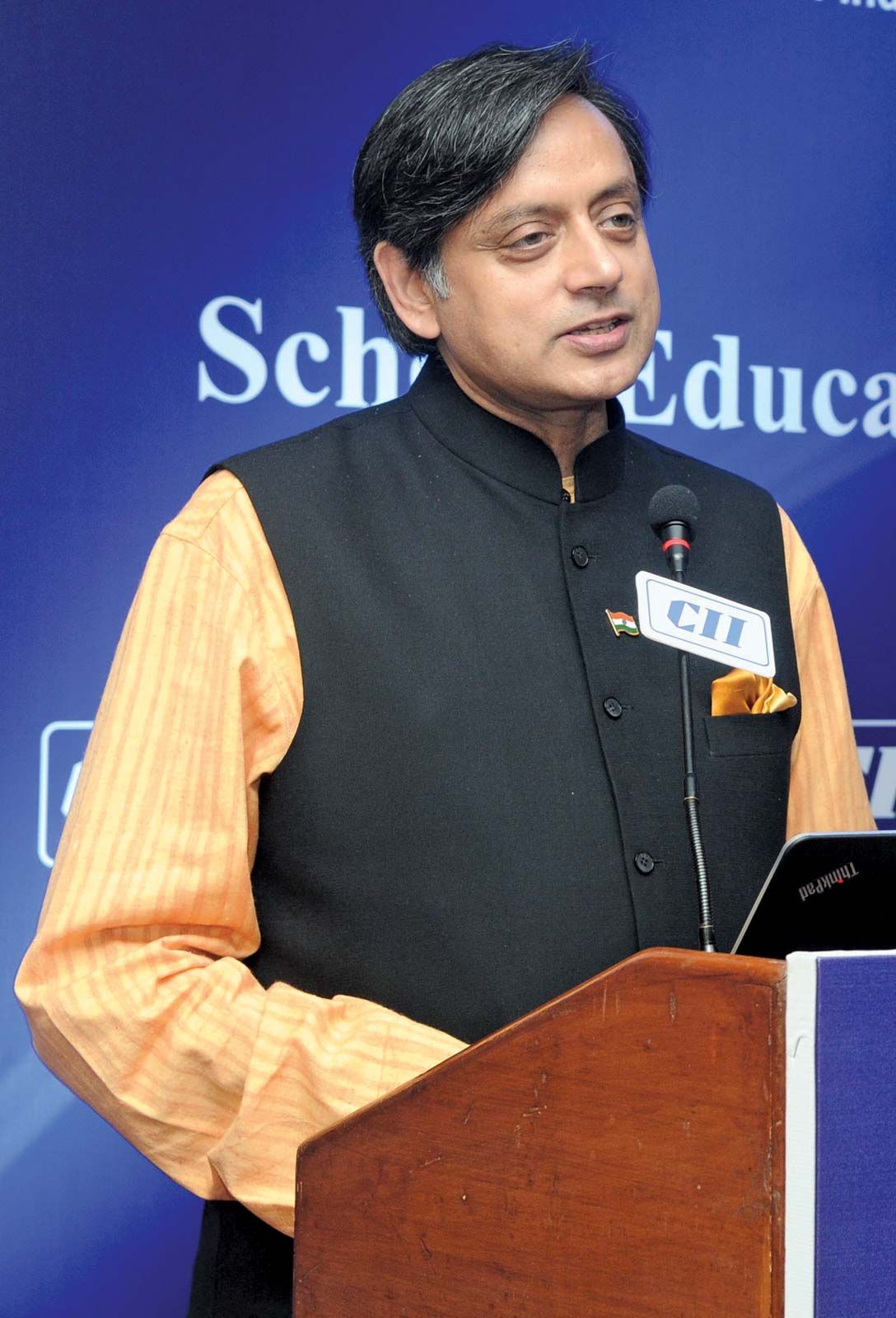


Congress leader Shashi Tharoor has slammed the central government for failing to address the alarming levels of air pollution in Delhi. Citing statistics showing Delhi as the most polluted city in the world, Tharoor expressed concern over the government's lack of action despite years of warnings. With the city's air quality reaching hazardous levels, Tharoor called for immediate measures to improve the situation.
Air Pollution Crisis in Delhi: Congress Leader Shashi Tharoor Slams Government Inaction
Congress leader Shashi Tharoor has strongly criticized the central government for failing to address the severe air pollution crisis in Delhi. The rampant air pollution in the national capital has raised alarms, with Delhi consistently ranking as the most polluted city in the world.
Background
Air pollution has plagued Delhi for several years, largely due to a combination of factors, including vehicular emissions, construction activities, industrial pollution, and agricultural waste burning. Despite repeated warnings and concerns raised by experts, the government has allegedly failed to take adequate measures to mitigate the situation.
Tharoor's Criticism
In a statement, Tharoor expressed concern over the government's inaction, stating that the air pollution levels in Delhi had reached hazardous levels. He cited statistics that showed Delhi had become "the most polluted city in the world" and that the government had "ignored years of warnings" about the impending crisis.
Tharoor called for immediate action to improve the situation, emphasizing that "the health and well-being of Delhi's citizens [were] at stake." He urged the government to implement a comprehensive pollution control plan, including measures such as banning polluting vehicles, promoting public transport, and encouraging the use of clean energy.
Government's Response
The government has yet to issue an official response to Tharoor's criticism. However, in the past, the government has acknowledged the air pollution problem and has taken some steps to address it. These measures include banning the burning of crop residues, imposing restrictions on construction activities, and promoting the adoption of electric vehicles.
Top 5 FAQs and Answers
1. What causes air pollution in Delhi?
A combination of vehicular emissions, construction activities, industrial pollution, and agricultural waste burning contributes to Delhi's air pollution.
2. Why has Delhi become the most polluted city in the world?
Years of inaction and ineffective pollution control measures have led to Delhi's worsening air quality.
3. What health risks are associated with air pollution?
Air pollution can cause respiratory problems, cardiovascular diseases, and even cancer.
4. What measures can be taken to mitigate air pollution in Delhi?
Banning polluting vehicles, promoting public transport, encouraging clean energy use, and imposing restrictions on construction and agricultural waste burning are some potential solutions.
5. What is the government's stance on air pollution in Delhi?
The government has acknowledged the problem and taken some steps to address it, but critics argue that these measures have been insufficient to improve Delhi's air quality significantly.

Maurya pays tribute to Sardar Patel on his 150th birth anniversary, hailing him as a symbol of India’s unity and strength. He praises the Prime Minister’s efforts in realizing Patel’s dream of a united and self-reliant India. The Deputy Chief Minister also emphasizes the importance of the Statue of Unity in showcasing India’s cultural pride and resolve. He urges citizens to visit the monument, which stands as a testament to Patel’s legacy of a united and strong India.

Despite facing setbacks such as rape charges against one of its MLA and increased welfare pension by the ruling party, the United Democratic Front (UDF) emerges victorious in the local body elections in Kerala. The results show a strong anti-incumbency wave and the UDF manages to win key constituencies like Kochi, Kannur, Kollam, and Thrissur in a surprising turn of events. This has boosted the confidence of the Congress, with senior leaders like Rahul Gandhi and Ramesh Chennithala terming it as a clear sign of their growing popularity in the state.

Amid the recent terrorist attack targeting the Jewish community in Sydney, Australia, US President Donald Trump offered words of reassurance and encouraged prideful celebration for those observing Hanukkah. He expressed his disdain for the attack and praised the bravery of the man who tackled one of the attackers. Trump also reminded everyone to come together to celebrate the holiday and condemn such heinous acts of hate.

Nitin Nabin, BJP's newly appointed National Working President, thanked Prime Minister Narendra Modi and the party's senior leaders for entrusting him with the top organizational responsibility. He also credited the hardworking party workers for the success of BJP across the nation. Nabin hit out at the Congress for using abusive language against PM Modi, stating that it only strengthens him. He also praised the party workers for their dedication and hard work in maintaining BJP's winning streak in his constituency as well as West Patna.

Maharashtra Chief Minister Devendra Fadnavis has dismissed criticism from the Opposition regarding the law and order situation in the state, citing a high conviction rate of 96.24%. He also highlighted the improved response time for the 'Dial 112' service and a decrease in crime in Pune. Additionally, Fadnavis addressed concerns over crimes against women and children and stated that the registration rate for complaints is over 99%.

The BJP's Parliamentary Board, on Sunday, appointed five-term MLA and Bihar Cabinet Minister Nitin Nabin as the party's national working president. This sets him up as a potential successor to current national president J P Nadda in January, marking a shift in the party's leadership towards a younger generation. With crucial Assembly elections approaching, Nabin's election as party president could have significant implications on the party's future direction, and his appointment has received praise from top leaders like Prime Minister Narendra Modi and Home Minister Amit Shah.

Amid the chaos and tragedy of the Sydney Bondi Beach attack, a bystander has emerged as a hero after bravely disarming a gunman. Ahmed al Ahmed, a local fruit shop owner, charged at one of the gunmen and successfully took away their weapon, risking his own life in the process. He has since been identified as a father of two and is receiving treatment in the hospital, while being praised globally for his heroic actions.

The Bharatiya Janata Party has shocked many with its decision to elevate Bihar minister Nitin Nabin as its national working president, making him the youngest person to hold the position. This move marks a significant leadership reset within the party and is likely to have a domino effect on the internal hierarchy. Along with the appointment of an OBC leader as BJP's UP unit president, this strategic shakeup suggests that the party is preparing for the next electoral cycle and setting the stage for a post-Modi era.

In the aftermath of the National Democratic Alliance's landslide victory in the Bihar Assembly elections, the Bharatiya Janata Party has selected Nitin Nabin, a prominent social worker and committed political activist, as the party's National Working President. With a strong background in grassroot engagement and solid organisational skills, Nabin's appointment reflects the BJP leadership's confidence in his capabilities. As the son of a senior BJP leader, Nabin belongs to a well-respected Kayastha community and has proven himself as both an effective minister and an able politician over the past 14 years.

Political activist Salman Ahmad has made shocking allegations that Pakistan’s Army Chief, General Asim Munir, orchestrated a terror attack in Kashmir in order to solidify his power within the country. In an interview, Ahmad claimed that Munir wanted to provoke India into retaliating so he could project himself as a strong military leader. This comes as 42 US lawmakers have called for an investigation into alleged human rights violations by Munir's regime.